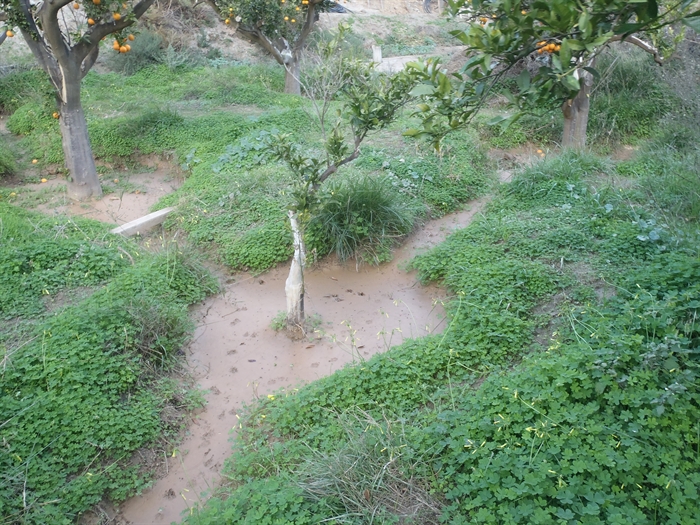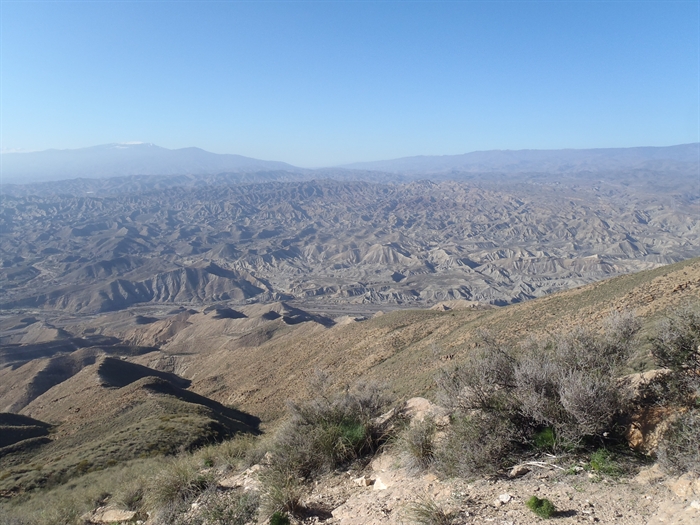
The author's home in Almeria, Spain.
(SCOTT MORAN / iNFOnews.ca)
January 11, 2017 - 12:00 PM
OPINION
Hola amigos! This is week eight of my fourteen-week winter escape in Spain.
I currently reside on a farm in Almeria, southern Spain. This is the third farm I have visited as a volunteer during my recent travels, with the help of a program called WWOOF (Willing Workers On Organic Farms).
Relative to the rest of the country, this region is sparsely populated. Despite this, it has some of the richest history I have ever experienced. In less than two hours of walking I can be standing on the site where the first copper was made in all of Europe. The garden on this farm is possibly 1,000 years old, built by the former Arabic population that inhabited southern Spain centuries ago.
Minutes in to my first tour of the garden with my host, I thought of permaculture. Permaculture is a new term used to describe farming methods and systems that are being implemented in all parts of the world by progressive gardeners. Its meaning is very broad, but it can be loosely defined as permanent agriculture. The main idea of permaculture is to reduce the input of resources and labour.
In a ‘perfect’ garden, there is no irrigation or fertilizer. The variety of plants, shrubs, and trees, maintain a perfect balance of nutrients in the soil. A garden without an empty spaces (bare soil) will also retain water under the plant growth. Even in my current desert climate, a full garden will stay moist every morning from the dew. Whether the land is flat or sloped, a rain irrigation system should be able to water the entire property without any human involvement, except the turn of one knob.

Irrigation channels capture rain water in the garden of mostly orange trees.
(SCOTT MORAN / iNFOnews.ca)
All of the water on this property is rainwater. Our showers, drinking water, irrigation, all of it comes from the sky, and only a few days out of the year. The low lands in the region of Almeria will sometimes go nearly a year without rain. The garden is mostly orange trees. The trees are set on terraces and excess water will flow downhill, naturally irrigating every tree on the property. The small canals stretching from the top of the ravine containing the garden were built by Arabic people who lived here for hundreds of years. Our work is maintaining the design that is already here for us.
One week before Christmas, there was a ‘once every fifty-years’ weather event. In some areas, the annual rainfall average came down in less than five days. The soil here is not able to absorb water well because the rain is so infrequent. The local gardens are built in-between the hills for protection from the sun, but this can be a disadvantage when there is rapid erosion. Myself and a few other volunteers are currently in rescue mode with the trails and channels on the property. It would be hard to find a piece of land with better planning for agriculture than what we have here, but a person could never plan for that amount of rain in this region.

A view in Almeria, Spain where the author is currently working.
(SCOTT MORAN / iNFOnews.ca)
I have volunteered on eight farms in Europe, but this is the hardest work I have done. It is also the work I am most proud of. Everyday we shovel dirt for six hours, rearranging the property to find a new home for the newly eroded dirt and make sure the water can travel down the land as intended by the creators of this garden. What we do here will outlive us, as long as there is somebody to clean up after the next heavy rain.
Permaculture is a new concept, but the foundations of permaculture are so solid that they have been used throughout the entire history of agriculture. Living in a semi-desert climate in the Okanagan and being so dependent on agriculture for our local economy (apples previously, wine currently) all locals should be able to appreciate the value of managing our soil and water with a practical intelligence.
— Scott Moran is a local forager discovering his own path to food freedom
We welcome your comments and opinions on our stories but play nice. We won't censor or delete comments unless they contain off-topic statements or links, unnecessary vulgarity, false facts, spam or obviously fake profiles. If you have any concerns about what you see in comments, email the editor.
News from © iNFOnews, 2017